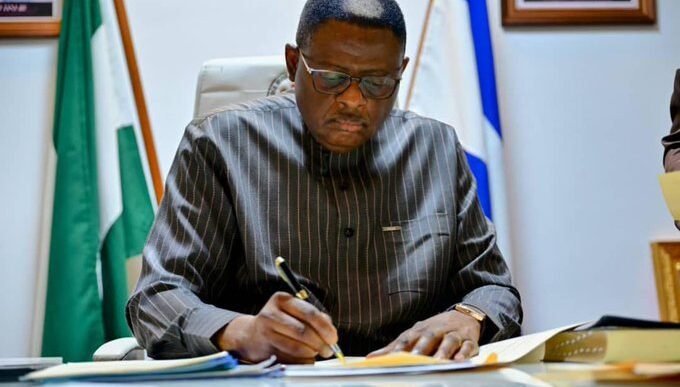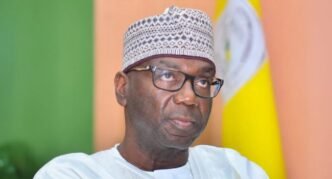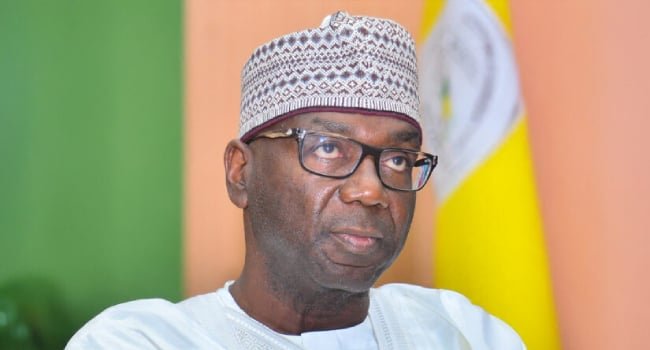ABUJA — The Central Bank of Nigeria (CBN) has revealed that the country’s foreign exchange reserves have climbed to more than US $46 billion, according to CBN Governor Olayemi Cardoso. The figure marks a strong recovery in Nigeria’s external liquidity and offers renewed optimism for the nation’s macro-economic stability.
Surge in Reserves: What Was Announced
At the opening ceremony of the CBN’s Monetary Policy Department 20th Anniversary Colloquium in Abuja, Governor Cardoso announced that Nigeria’s foreign currency reserves had surpassed US $46 billion. He emphasized that this level of reserves could cover “over 10 months of imports,” underlining how significant the external buffer has become.
According to some reports, the reserves may be as high as US $46.7 billion, marking their strongest point in more than a decade. This comes after consistent progress in rebuilding Nigeria’s foreign exchange position.
Key Drivers Behind the Increase
The rise in reserves reflects a combination of deliberate policy actions and favorable external dynamics. Key drivers include:
- Foreign Exchange Market Reforms
Under Governor Cardoso, the CBN has pushed for greater transparency, more market-based foreign exchange windows, and the clearing of longstanding FX payment backlogs. These reforms are improving confidence in Nigeria’s FX policies. - Non-Oil Inflows and Remittances
Nigeria is increasingly relying on non-oil exports and diaspora remittances. These inflows are helping to shore up the foreign exchange reserves, reducing overreliance on volatile oil revenue. - Reduction of Short-Term FX Liabilities
The CBN has made efforts to bring down its short-term foreign currency obligations — including swaps and forward contracts. By trimming these liabilities, the bank improves its “net” reserve position. - Coordinated Macro-Economic Strategy
The central bank’s efforts are being complemented by broader fiscal and economic policies, suggesting better coordination between monetary and fiscal authorities. This synergy is creating a more stable environment for external accumulation.
Why It Matters for Nigeria’s Economy
The resurgence in Nigeria’s foreign reserves has important implications:
- Import Stability: A buffer that covers over ten months of imports provides critical breathing space for Nigeria’s trade needs.
- Stronger FX Backstop: Higher reserves enhance the CBN’s capacity to intervene in the foreign exchange market and stabilize the naira when necessary.
- Investor Confidence: Rising reserves send a positive signal to both domestic and international investors about Nigeria’s commitment to macro-economic stability.
- Shock Absorption: A robust reserve position helps shield Nigeria from external shocks such as commodity price swings or capital flow reversals.
- Policy Credibility: The reserve build-up is a validation of recent monetary policy reforms and an indicator that the CBN’s strategies are gaining traction.
Risks and Persistent Challenges
Despite the good news, several risks remain:
- Sustainability Concerns: Maintaining this level of reserves will require continued inflows. A reversal in remittances, portfolio flows, or export earnings could quickly erode gains.
- Net Reserve Quality: Gross reserves are only part of the story. The net reserve position — after accounting for liabilities — remains critical to understanding how much of the reserves are truly usable.
- Inflation and Currency Pressure: High inflation or renewed naira volatility could undermine the confidence built by the reserve build-up.
- Oil Dependence: Even with greater non-oil inflows, Nigeria’s economy and foreign currency earnings still rely significantly on oil. A drop in oil revenue would pose a major risk.
- Debt Servicing Needs: Foreign-currency debt service and other external obligations could put pressure on reserves if not managed carefully.
- Reform Fatigue: The momentum driving the reserve surge must be sustained. Any slowdown in reforms could lead to policy reversals or diminished investor trust.
What to Watch Going Forward
To assess whether Nigeria can sustain this positive trend, here are key indicators to monitor:
- Reserve Trends: Future disclosures from the CBN will show whether the reserves continue to grow, hold steady, or slip.
- Import Cover Metrics: How many months of imports the reserves can cover is a crucial measure of external resilience.
- Net Foreign-Exchange Reserves: Tracking the net reserve position will be important to understand the true strength of the buffer.
- FX Market Spread: The premium between official and parallel exchange rates will indicate whether market distortions are narrowing.
- Inflation and Interest Rates: The trajectory of inflation and how it influences CBN interest-rate decisions will shape the macro outlook.
- Non-Oil Sector Performance: Growth in exports, remittances, and domestic productivity will be necessary for sustaining inflows.
- Global Shocks: External risks — such as changes in global interest rates, oil price volatility, or capital outflows — will test the resilience of Nigeria’s reserves.
- Debt Dynamics: The government and CBN’s coordination on managing external debt obligations will remain critical.
Conclusion
The announcement that Nigeria’s foreign exchange reserves have breached the US $46 billion mark under Governor Cardoso is a strong signal of external-sector revitalization. This milestone reflects positive momentum in reforms, improved inflows, and better policy coordination.
However, this achievement should not lead to complacency. For the reserve gains to generate lasting macro-economic stability, Nigeria must sustain its reform drive, deepen its non-oil economy, and carefully manage external obligations.
If successful, this stronger reserve base could help stabilize the naira, support growth, and protect Nigeria from future external shocks. The journey may be long, but the recent gains provide a hopeful foundation for more resilient economic management.














